Search
Remove Ads
Advertisement
Summary 
Loading AI-generated summary based on World History Encyclopedia articles ...
Search Results
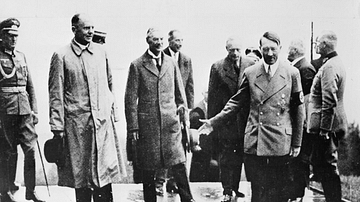
Article
Why Did Britain & France Appease Hitler?
The policy of appeasement towards the demands of Adolf Hitler (1889-1945) regarding Nazi Germany's territorial expansion ultimately failed when the Second World War (1939-45) began. The reasons appeasement was adopted by Britain and France...

Article
The Causes of WWII
The origins of the Second World War (1939-45) may be traced back to the harsh peace settlement of the First World War (1914-18) and the economic crisis of the 1930s, while more immediate causes were the aggressive invasions of their neighbours...
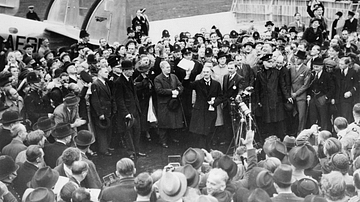
Definition
Munich Agreement
The Munich Agreement, signed on 30 September 1938 at the Munich Conference attended by the leaders of Britain, France, Italy, and Germany, handed over the Sudetenland of Czechoslovakia to Germany in the hope that this act of appeasement would...
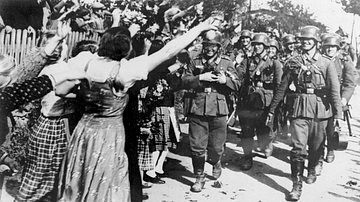
Article
Hitler's Occupation of Czechoslovakia
Throughout 1938, Adolf Hitler (1889-1945), the leader of Nazi Germany, threatened to occupy the Sudetenland region of Czechoslovakia. The excuse presented was that Sudeten Germans were being repressed but Hitler was intent on creating a 'Greater...

Definition
League of Nations
The League of Nations was founded in January 1920 to promote world peace and welfare. Created by the Treaty of Versailles, which formally ended the First World War (1914-18), the League provided a forum where nations promised to resolve international...
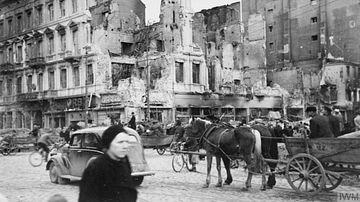
Article
The Invasion of Poland in 1939
The leader of Nazi Germany Adolf Hitler (1889-1945) ordered the invasion of Poland on 1 September 1939. Hitler's refusal to withdraw brought a declaration of war from Britain and France on 3 September, and so began the Second World War (1939-45...
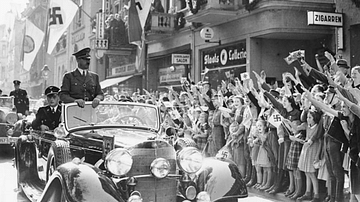
Collection
The Steps to World War Two
The causes of WWII (1939-45) were many and varied, but there was a chain of international crises in Europe, which finally degenerated into a conflict that ultimately spread to engulf most of the world. In this collection of resources, we...
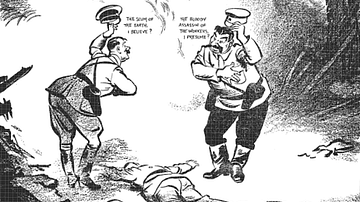
Definition
Nazi-Soviet Pact
The Nazi-Soviet Pact, also called the Molotov-Ribbentrop Pact after the respective foreign ministers of the USSR and Germany, was a non-aggression agreement signed in August 1939. The pact allowed the leader of Nazi Germany Adolf Hitler (1889-1945...

Definition
Aethelwulf of Wessex
Aethelwulf (r. 839-858 CE) was King of Wessex, a region in modern-day Britain, son and successor to Egbert of Wessex (r. 802-839 CE) who had unified and expanded his kingdom with Aethelwulf's assistance. Aethelwulf fought at the Battle of...

Article
Religion in the Middle Ages
Religion in the Middle Ages, though dominated by the Catholic Church, was far more varied than only orthodox Christianity. In the Early Middle Ages (c. 476-1000), long-established pagan beliefs and practices entwined with those of the new...